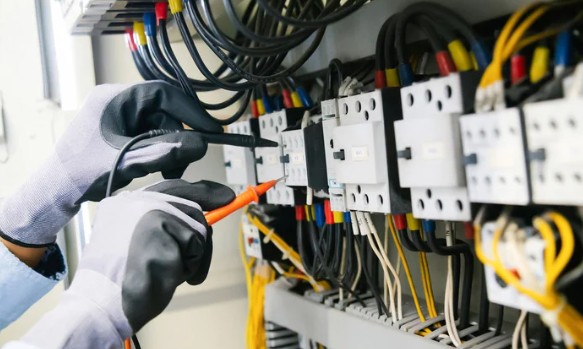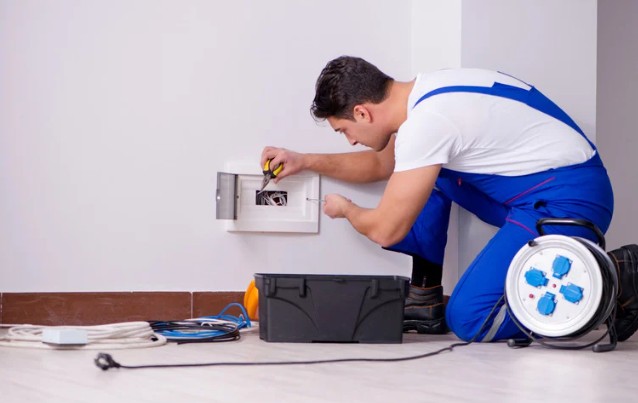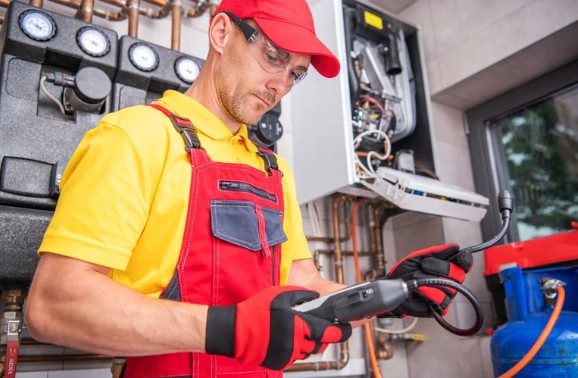Running a successful restaurant isn’t just about serving great food—it also requires a safe, efficient, and code-compliant environment. Electrical safety is a critical yet often overlooked aspect of food service operations. Busy kitchens rely heavily on electrical systems to power ovens, fryers, refrigerators, dishwashers, exhaust fans, and lighting simultaneously.
Without regular inspections and maintenance, wiring issues and system failures can quickly escalate. In fact, many commercial kitchen fires and equipment failures result from neglected electrical upkeep. With the rapid growth of food service businesses, experts stress the importance of proactive electrical maintenance to prevent hazards and minimize operational disruptions.
Why Electrical Maintenance Matters in Restaurants
The food service industry relies on precision and timing. A power outage, appliance failure, or electrical issue can instantly disrupt operations, leading to lost revenue, food safety risks, dissatisfied customers, and impacted employee well-being.

Here’s why staying on top of your electrical system is not optional:
- Safety Compliance: Local regulations and health departments often require proof of safe electrical systems, especially in commercial kitchens where high heat, moisture, and grease create volatile conditions.
- Fire Prevention: Faulty wiring or overloaded circuits are a leading cause of kitchen fires.
- Equipment Longevity: Electrical fluctuations and improper grounding can damage expensive appliances over time.
- Reduced Downtime: Preventive maintenance helps identify problems before they cause costly equipment failures.
- Insurance Coverage: Many insurers require proof of regular electrical servicing to validate claims in the event of damage.
Whether you run a small café or a large franchise kitchen, a consistent electrical maintenance plan is your best safeguard against unexpected breakdowns and code violations.
Key Areas of Focus in Electrical Maintenance
Maintaining a safe electrical system in a restaurant goes beyond checking if the lights turn on. Here are essential components that should be included in a professional maintenance plan:
1. Breaker Panels and Circuit Loads
Your breaker panel controls the entire electrical flow in the restaurant. It’s vital to ensure circuits aren’t overloaded, especially in kitchens where multiple high-wattage appliances operate at once. Overloaded breakers can trip frequently or, worse, overheat and cause fires.
2. Wiring and Conduit Integrity
Wires behind walls or ceilings should be regularly inspected for signs of wear, fraying, or heat damage. Conduits must be secure and protected from grease buildup, rodents, or moisture.
3. Appliance Connections and Power Supply
Commercial-grade kitchen appliances require stable, uninterrupted power. Loose plugs, exposed wiring, or improper voltage matching can result in damage to equipment and injury to staff.
4. Grounding and GFCI Outlets
Wet areas like dishwashing stations, bars, or bathrooms require GFCI (Ground Fault Circuit Interrupter) outlets to prevent shocks. Grounding also plays a major role in directing excess voltage away from sensitive appliances and personnel.
5. Emergency and Exit Lighting
Maintaining clear and functional emergency lighting and exit signage is required for safety and compliance. These systems must operate independently of your main power supply and need regular testing.
Also Read: The Importance of Professional Building Inspections
Warning Signs You Shouldn’t Ignore

Often, restaurants operate with underlying electrical issues that go unnoticed until a major failure occurs. Here are red flags to look out for:
- Frequent breaker trips
- Burning smell near outlets or appliances
- Flickering lights or intermittent power loss
- Equipment that frequently shuts off
- Outlets or switches that feel hot to the touch
If you notice any of these signs, schedule an inspection immediately. Professional maintenance can identify the root cause before it leads to severe damage.
How Often Should Restaurants Schedule Maintenance?
Experts recommend scheduling professional electrical maintenance at least twice a year. However, the ideal frequency can depend on factors like kitchen size, building age, and the type of appliances in use. Older or high-usage establishments may benefit from quarterly inspections. Seasonal checks are also important, particularly before winter, when increased heating demands can strain your system.
Training Your Staff to Spot Issues
Even with routine inspections, your staff should be trained to identify early warning signs. Simple habits—like correctly unplugging appliances, limiting extension cord use, and flagging malfunctioning equipment—are crucial for a safe kitchen. Encourage your team to report irregularities immediately. Addressing a minor issue today can prevent a major outage tomorrow.
Conclusion
Electrical safety is crucial in the food service industry. Whether you’re running a busy kitchen or launching a new restaurant, maintaining your electrical system is essential for the safety of your staff, the quality of your food, and the reliability of your operations. Investing in restaurant electrical maintenance in Draper is more than just meeting safety codes—it’s about safeguarding your business.










